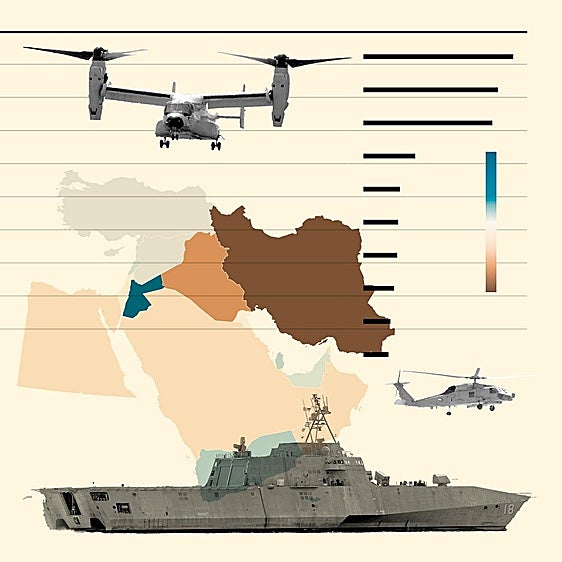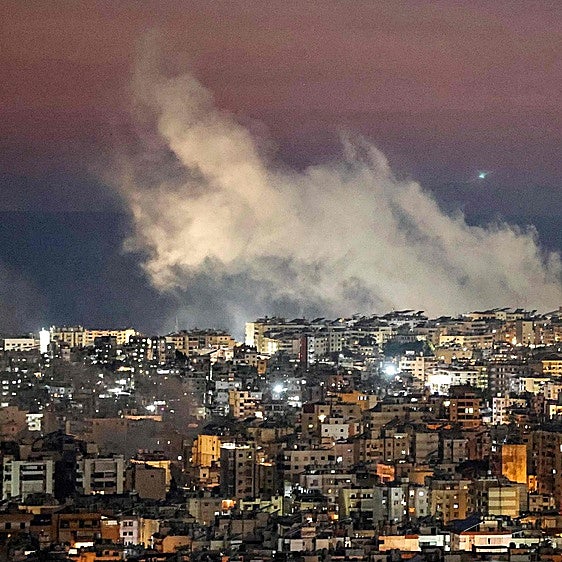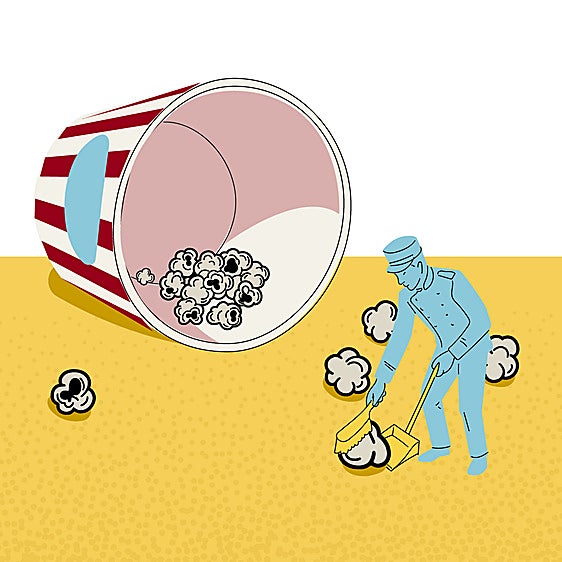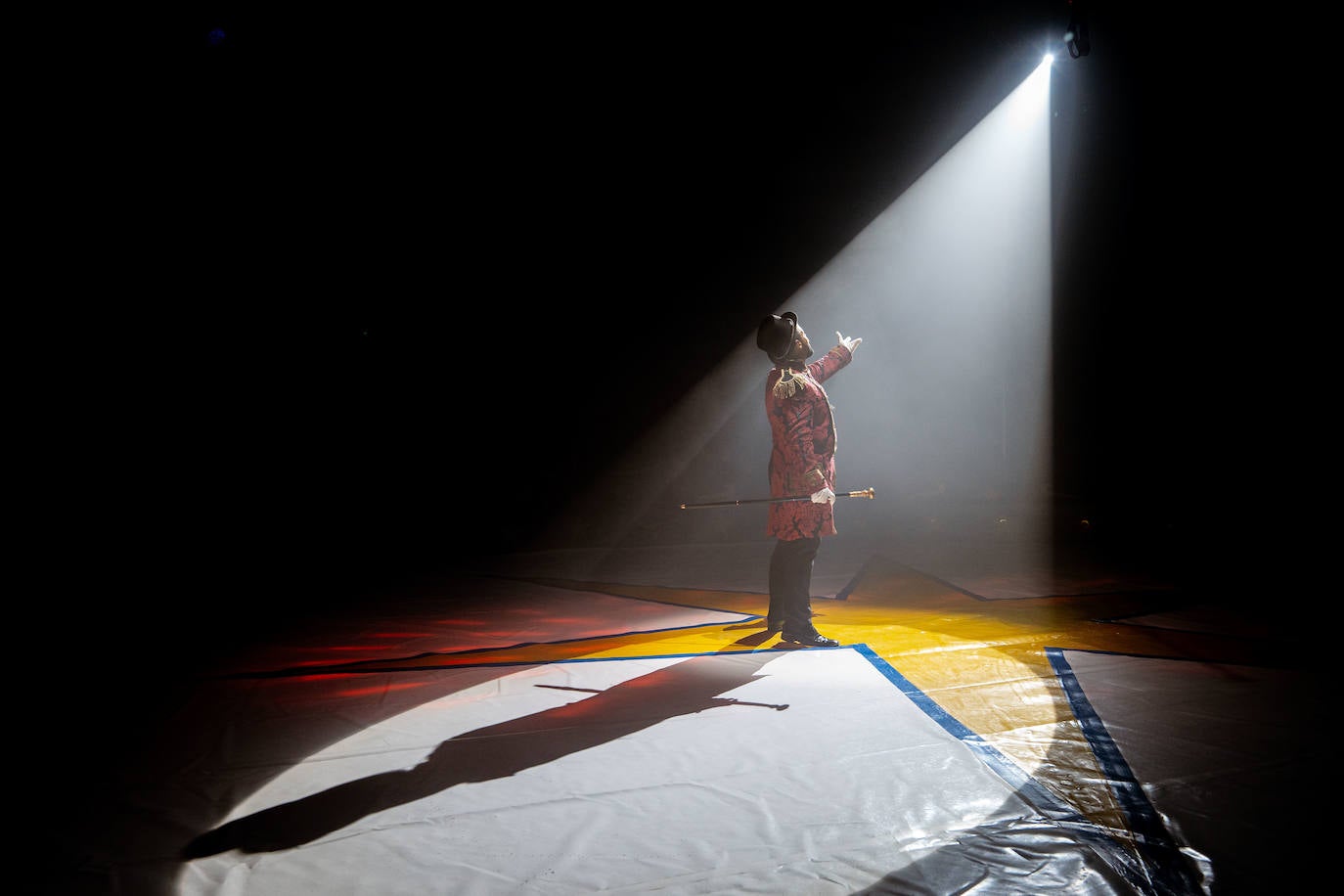Life under the big top
Berlin Zirkus on the Costa del Sol. The audience sees clowns, acrobats and magic tricks. What they don't see is less shiny: artists working hard to keep the show on the road, with more passion than resources
Alberto Gómez
Friday, 12 January 2024, 11:40
It is almost four years since a windstorm destroyed Berlin Zirkus's big top in La Línea de la Concepción. Its thirty workers watched on, helpless. It was time to start from scratch, to rebuild this factory of magic and pirouettes reduced to rubble. It was not the first time and it would not be the last. Months later came the pandemic with its black hole of restrictions and uncertainty. By then they had already had to reinvent themselves to adapt to the ban on the use of animals in their shows, a rule that put this age-old profession on the ropes. Since then, the circus has been in fragile health, held together more by dreams than resources, more imagination than budget.
It's time to pitch in. Everyone does everything here. Already dressed for his performance, barely half an hour before the start, the audience is half full - a "good" evening in terms of attendance - Frank mixes sugar and blue food colouring with the determination of a confectioner.
You wouldn't think he was the manager's son. "It's for the candy floss," he says behind the bar where they sell soft drinks, crips and sweets.
José Manuel, the ringmaster, the most visible face of the circus, is asked if he has a twin when he is seen filling popcorn buckets five minutes after hosting the show. He replies jokingly: "No, madam, he's my cousin. We look alike." The magic must go on.
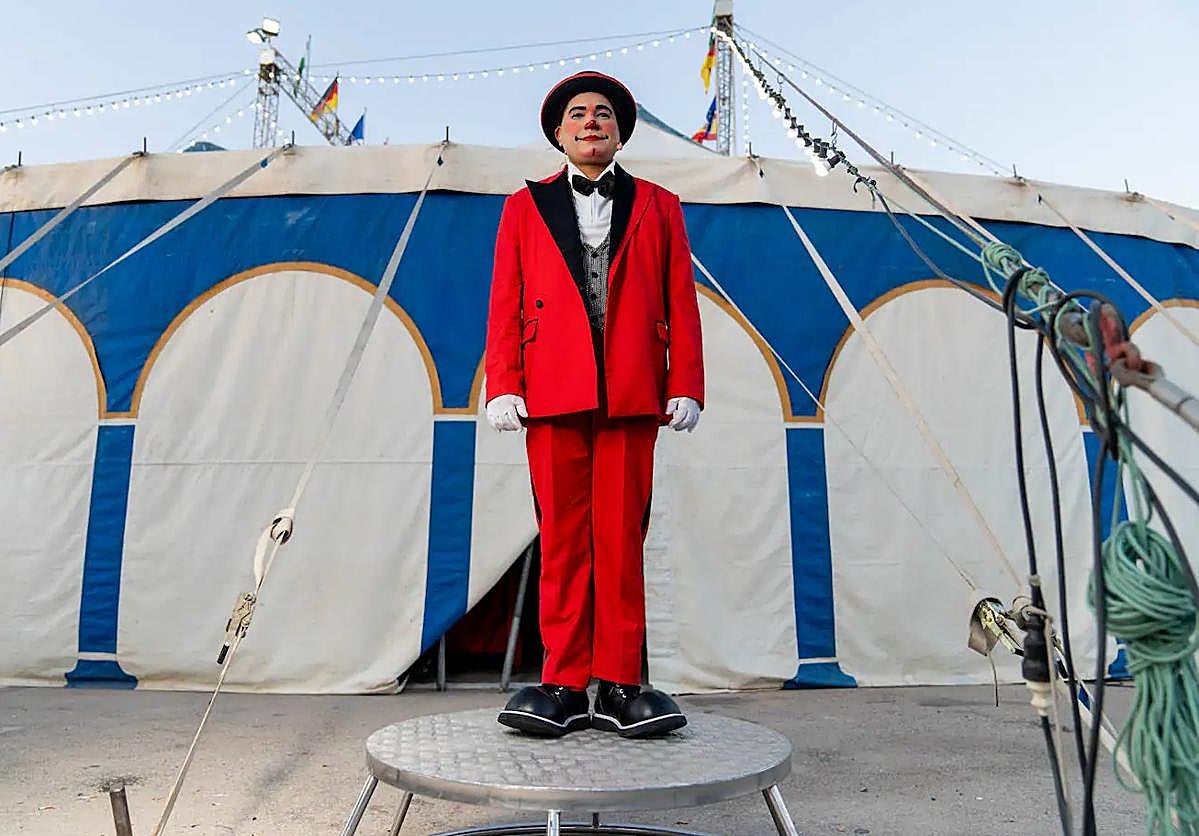
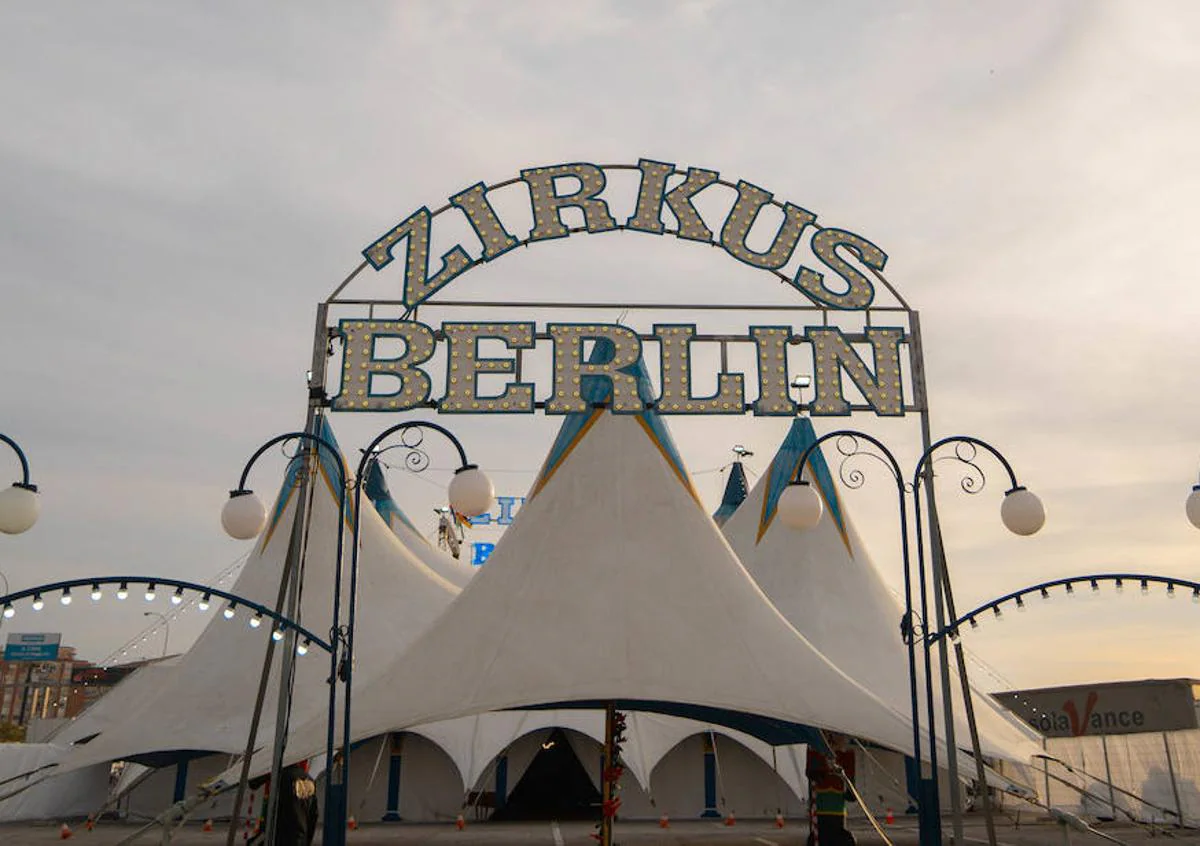
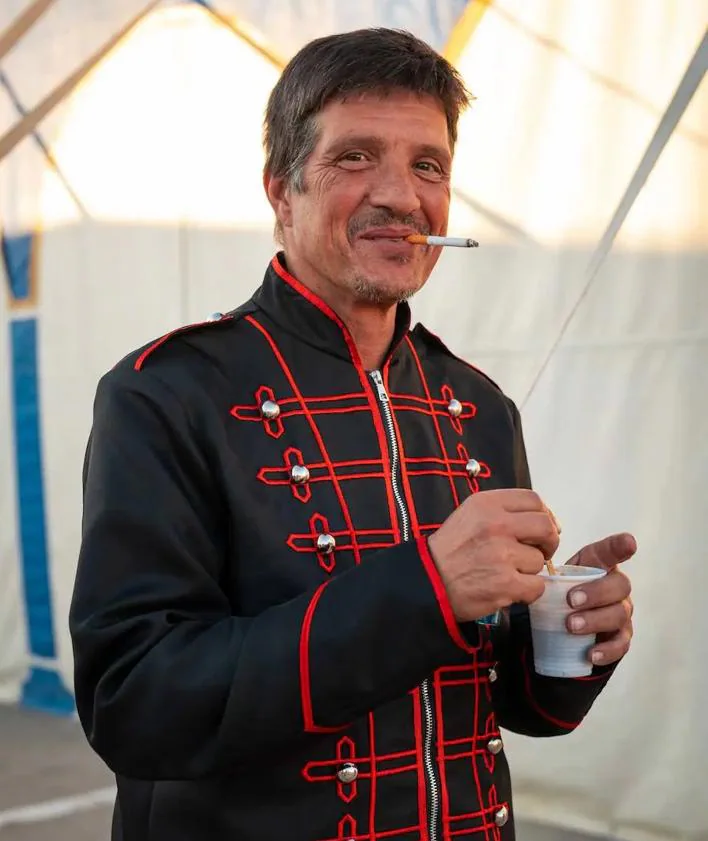
Mari is 56 years old and has been in the circus all her life. She specialised in three acts: the high wire, hair-hanging and dodging knives. Her story, like that of many of those with this itinerant job, goes back practically to the cradle: "I've been in circuses since I was born. My grandparents and my parents worked in them."
Now retired from the stage, she lends a hand at the Berlin bar. "I can't do the acts I used to do," she explains as her colleagues at the bar encourage her to look back on a career they consider admirable.
Circus for life
She avoids any hint of heroism: "I don't think it's as much of a sacrifice as they say, although it's true that you do get injured. Once, I hurt myself after lifting my sister so much, but well.... If it's in your blood it's not hard."
The lack of interest with which she has responded so far, more occupied with preparing hot dogs, evaporates when she is asked if she would like to return to the stage. She puts the mustard down and looks this reporter in the eye for the first time. "I would love to."
And doesn't it feel strange to be here now, on the other side?
"Nothing is strange in the circus. This is like a small town and we do whatever it takes to keep it going. Look at me, I don't do numbers anymore and I'm still here, even if it's just serving."
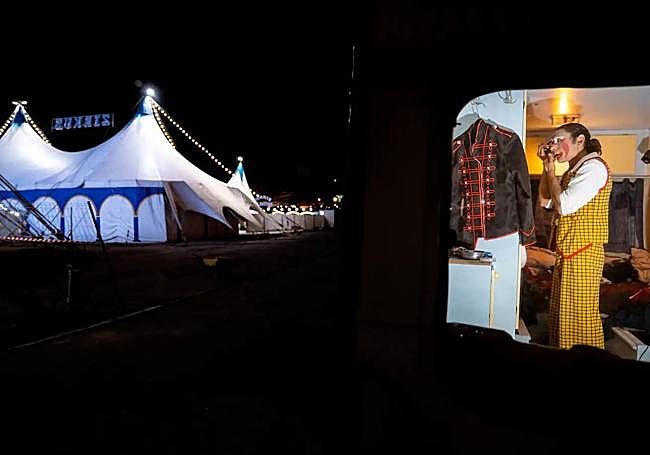
Zoom

Conditions are not what they used to be. There are no longer huge fees or kilometre-long queues, but artists with salaries of no more than a thousand euros and tickets bought in dribs and drabs over the internet. Gone are the golden years, when the visit of a circus was an event in any town.
Now they survive as best they can. Andrea, a juggler and clown at Berlin Zirkus, sums it up: "I never imagined I would work here."
He lives in a small van that he is adapting to install a shower. He is 28 and always wanted to be an actor: "I came to Spain to try my luck when I finished my drama studies in Switzerland, although I am Italian."
Like many, he first started out as a hotel entertainer. Then came the chance to join this big family, with its ups and downs like any other. "We spend a lot of time together. We love each other, but sometimes there is friction."
Family ties
That is another of the illusions that reality has shattered: the circus family. They are in the literal sense, because most of the workers are related to each other, but in the back room there is no trace of those long tables where magicians, tamers, tightrope walkers and human cannonballs used to share lunches and dinners.
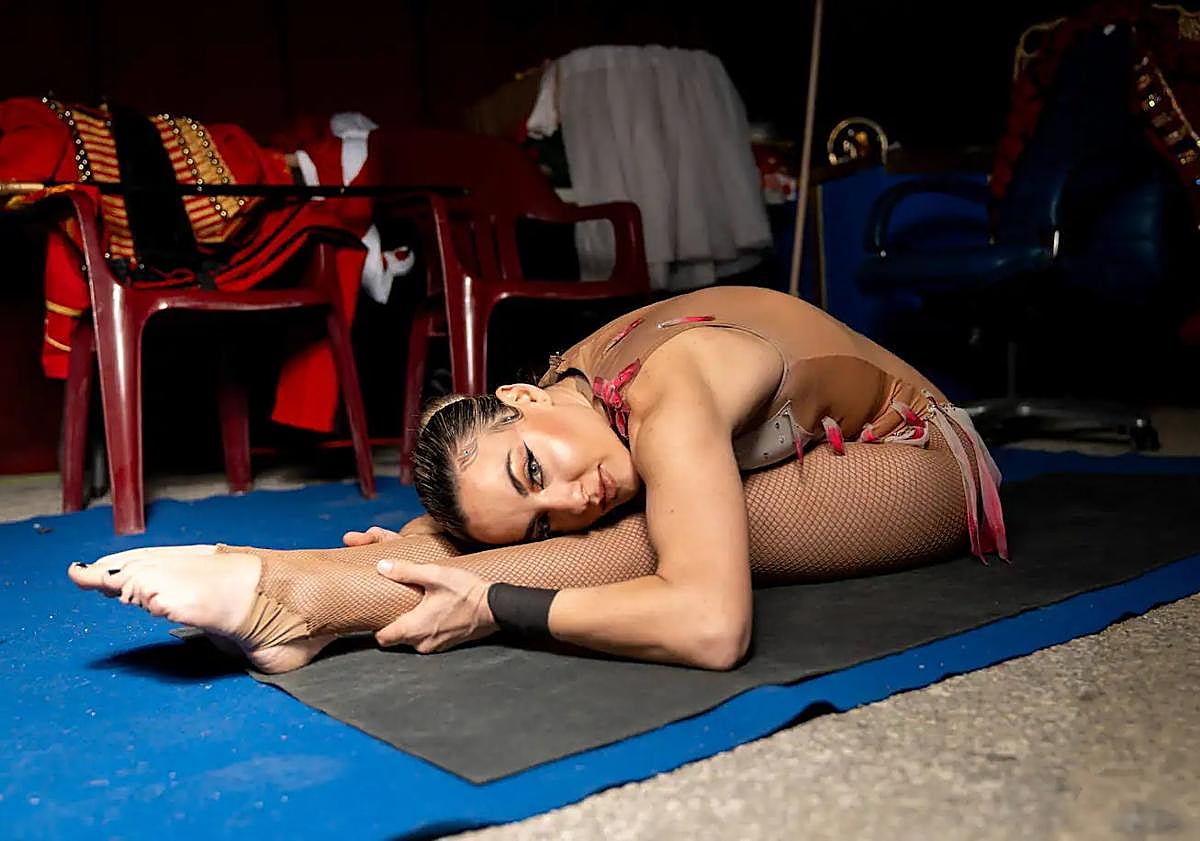
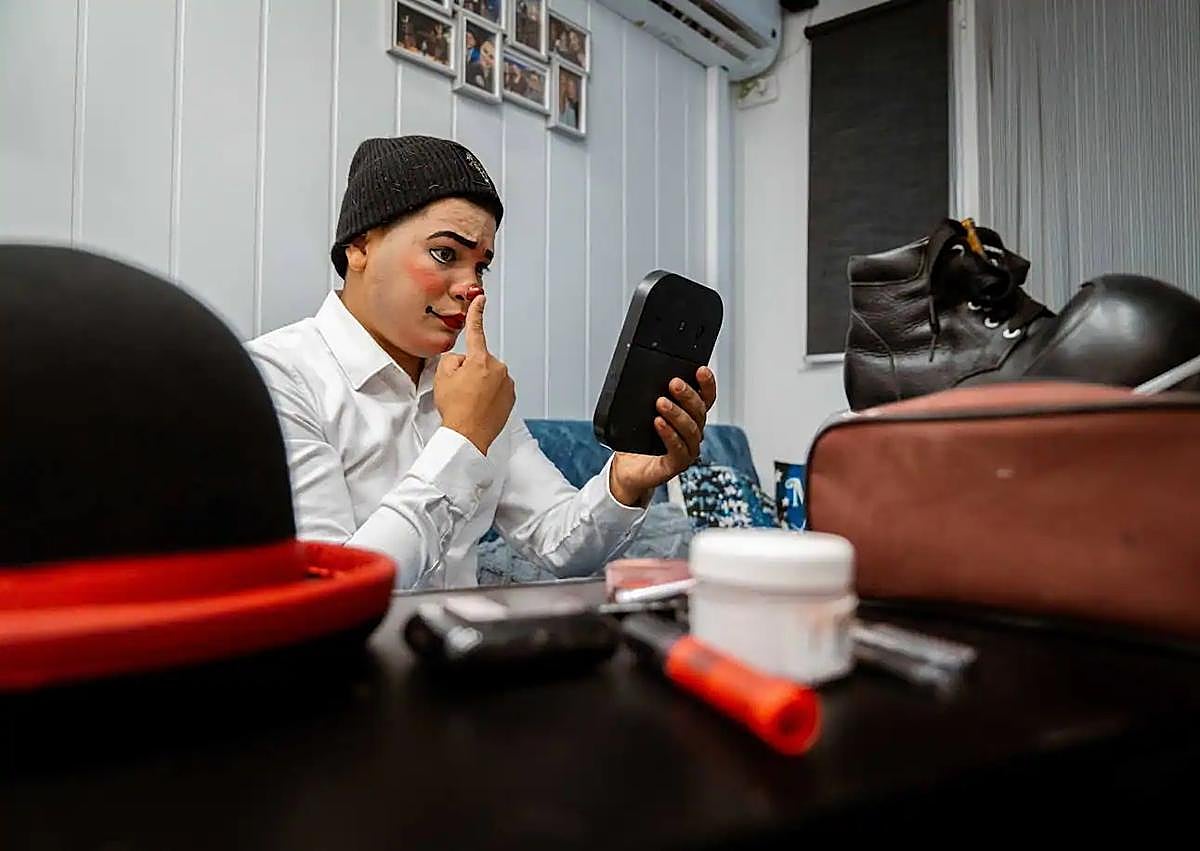
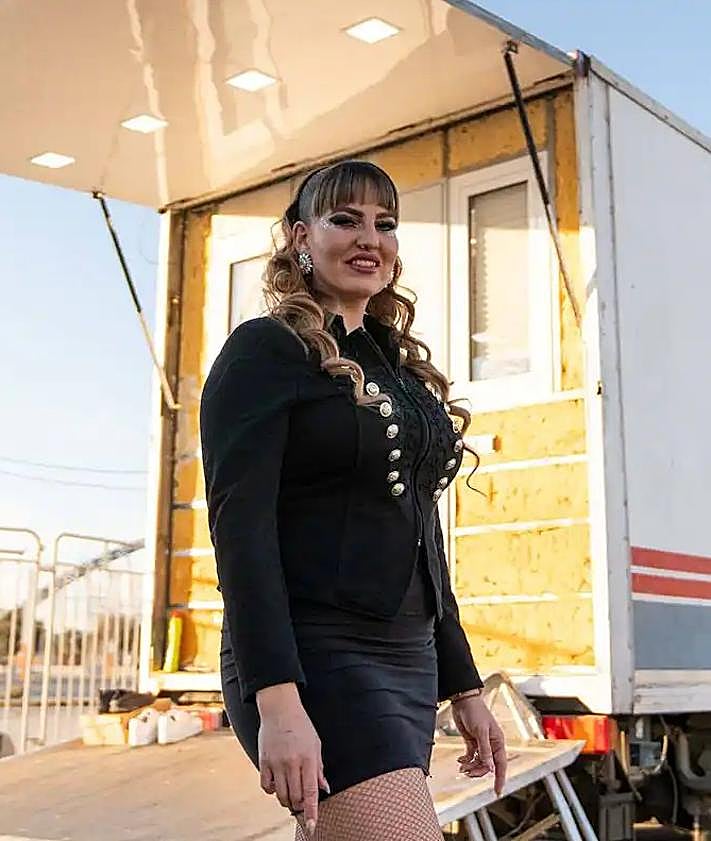
Everyone has their own caravan or van. There they cook, sleep, dress and put on their make-up. In the absence of dressing rooms, they have set up a "control area" to warm up and store part of the costumes and the magic show equipment, machines where girls appear and disappear, shoot laser beams or change clothes in a matter of seconds.
Frank and his sister Hannelore are the children of Franky Bügler and Miss Esmeralda - he is German, she is Spanish - who are the owners of the Berlin Zirkus. Hannelore was born in Lleida, but her real home is the circus: "I don't know any other life, I've always been on the road." Now she does the laser act "because you have to adapt to the new times and technology", as well as taking part in a magic trick with her brother, her sister-in-law and her aunt.
And what is childhood in a circus like? "It was the most beautiful childhood in the world. At first we went to a different school in each town and it was more complicated because we had to adapt, there were new classmates... But then the ministry of education gave us a teacher and we were taught in the circus, in a classroom that they set up. Sometimes there were six children, sometimes eight or ten... They examined us every term and that was it."
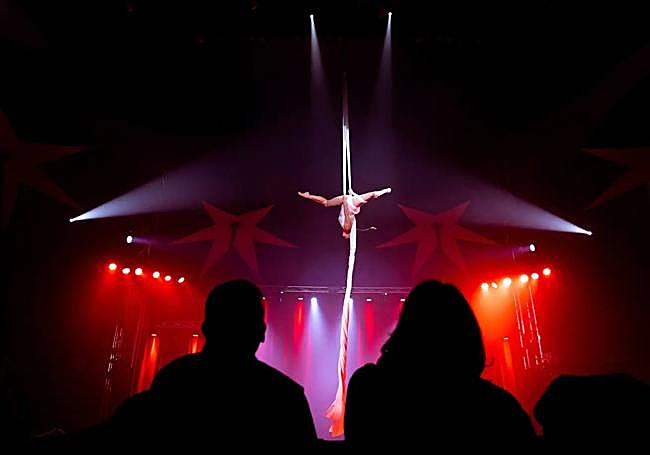
Zoom

Now the number of circus workers' children does not exceed the minimum required by the ministry to provide a teacher, a situation that forces artists like Inma to live with one foot in and one foot out of the big top. She is a gymnast and her husband is an acrobat, although he also works as a mechanic when one of the more than thirty vehicles that make up the Berlin fleet breaks down.
Children
"Our daughter is eight years old and spends part of her time in Tenerife and the rest of the time on tour with us. She loves it, it's in her blood. I wish there were enough children to have a classroom of their own in the circus and a teacher again," she says before going off to prepare 'buñuelo' doughnuts.
Then it's time to warm up; her act, aerial acrobatics, opens the show. Behind it are hours, many hours, of rehearsal: "But when your work is your passion, as in my case, you don't see it as a job. I've had injuries and aches and pains, but the reaction of the audience makes up for everything. That's what we're here for."
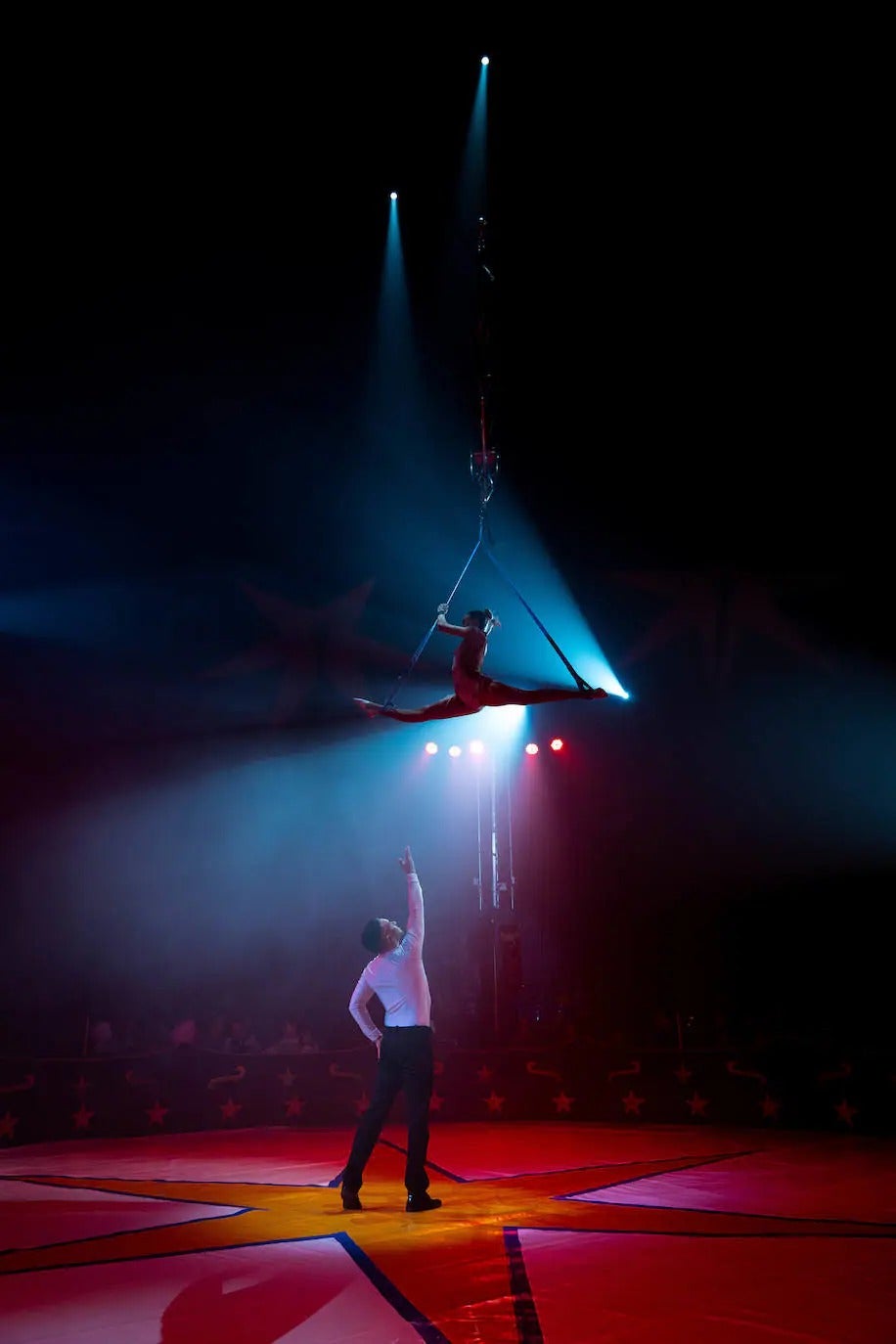
Zoom

Hannelore uses a similar expression: "They say that if your work is something you like doing, you'll never have to work. And I do what I like. It's very hard, but I like it a lot. I don't miss having free time or having had another childhood or another adolescence. The circus is my life, not just my job."
But there must have been some down times, of wanting to throw in the towel?
"Never. The worst thing was having to say goodbye to the animals. It seems very unfair to me. It's the innocent paying for the sins of the guilty. They say that in some places they mistreated them. So they should bring in more inspectors and controls, but they've decided that there will be no animals and it'll never be the same. I grew up with elephants, tigers, camels, buffaloes... Now I only have my dogs. The circus no longer smells of sawdust in the ring. And, of course, children now prefer to spend four hours hooked to the computer and don't have the patience or concentration to sit through a two-hour show," says Hannelore.
She shows her mobile phone case, printed with the image of her horse. "I used to do dressage. For me he is like a son. Now I keep him at a riding school and I go to see him whenever I have a day off. Of course it affects me." Frank has the same feeling: "It's like losing part of your family. My childhood was getting up with my grandfather and cleaning animals. Now not seeing the stable in the morning is hard."
Now the animal acts have been replaced by shows with characters such as Mario Bros and other attractions, such as hiring celebrity clown Rody Aragón, who spent several seasons with Zirkus Berlin to try to attract the more nostalgic circus lovers.
Moving on
There are only a couple of performances left before they end their stint in Malaga on 14 January. Then it will be time to take everything down, although that is what they are used to.
The next destination, Mijas, is not far away. "It's a nomadic life," confirms José Manuel: "We spend half our lives on the road, but that's our choice."
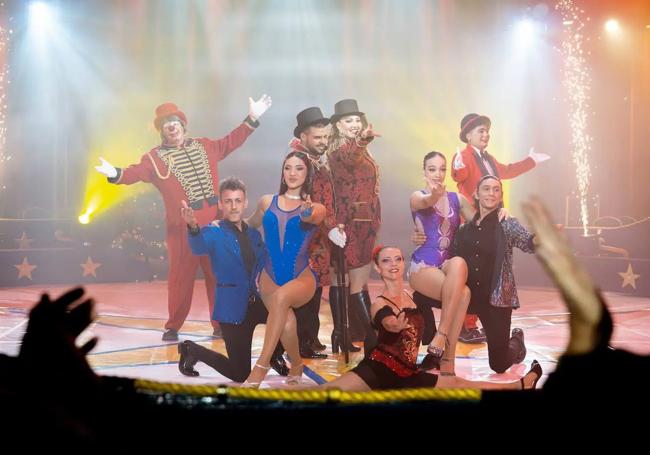
Zoom

There are no complaints, just a couple of requests: that the documentation they have to send in be standardised so that the tours don't depend on the efficiency or laziness of town halls, and that municipal taxes allow their business to breathe, a business that survives on its own, with only the money it takes from tickets sales and in the circus bar.
By next week, on this esplanade next to the city's Martín Carpena arena, where clowns, acrobats and magicians now parade, there will be nothing. The circus will have seemed like a dream. Perhaps it is.
